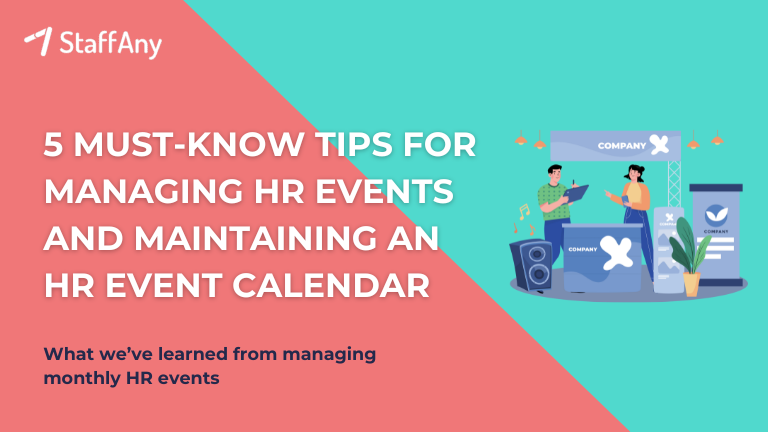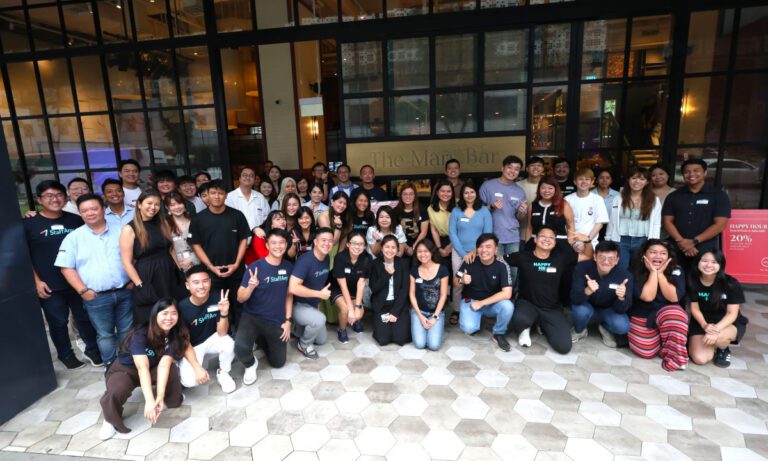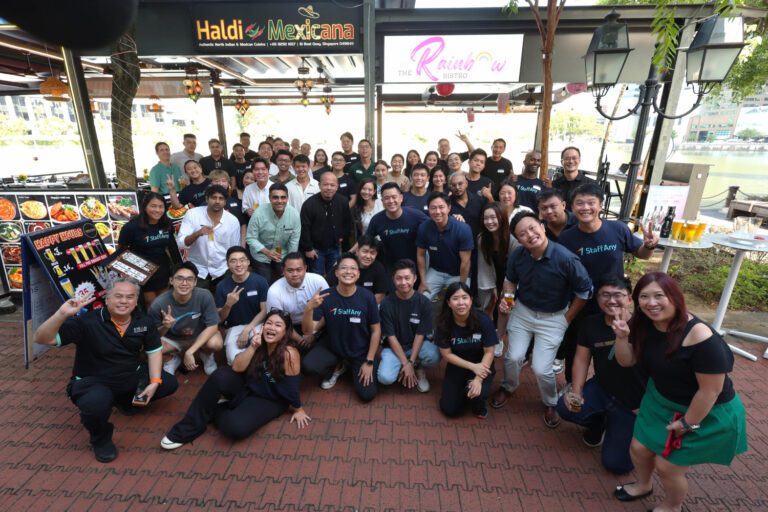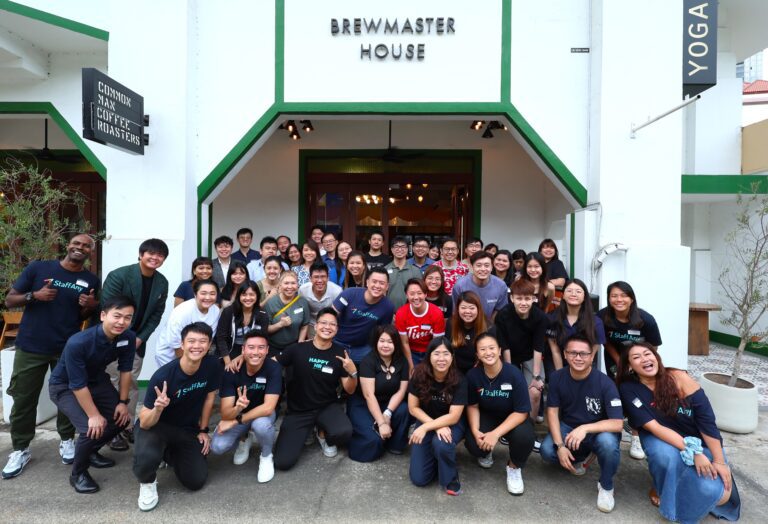
HR events are a powerful tool for building a strong workplace culture, enhancing collaboration, and driving participant engagement.
They offer opportunities for staff to learn, grow, and connect, which can significantly improve morale and productivity. Businesses can foster a more motivated and cohesive workforce by carefully planning and managing these events.
Part of what we do at StaffAny includes hosting HR Events not just for our staff, but for food and beverage industry leaders with our Leader’s Lounge and for HR professionals in our Happy HR Hours. We’d like to share what we’ve learned managing these events with you.
Lessons Learned by the StaffAny Team in Creating HR Events
Our Happy HR Hour events focus on helping business owners solve their day-to-day HR challenges. At these events, business owners can connect with experts and leaders who share the same passions. Here are five tips for managing successful HR events and maintaining an effective HR event calendar that we’ve learned:
1. Define Clear Objectives for Each HR Event
Before planning any HR event, it’s important to define your goals.
Are you aiming to boost participant engagement, provide training, or communicate new policies? Clear objectives help you plan more effectively and ensure that the event achieves its intended outcomes. At StaffAny HR events, business owners often discuss these goals and learn best practices from experienced leaders.
Understanding your objectives also helps you select the right format for your event. For instance, a workshop or seminar might be best if the goal is to educate. If you want to build team spirit, consider more interactive formats like team-building exercises or informal networking sessions.
Additionally, having clear objectives allows for better measurement of the event’s success. After the event, you can evaluate whether your goals were met through feedback and performance indicators.
2. Create a Comprehensive HR Event Calendar
An HR event calendar serves as your guide for the year. Include all key dates, such as training sessions, team-building activities, and policy update meetings. A well-organized calendar helps prevent scheduling conflicts and keeps everyone informed of upcoming events.
Planning also allows you to be strategic about timing. For example, hosting a training session right before a busy season ensures your team is well-prepared. Similarly, scheduling team-building activities after major projects can serve as a reward and a way to re-energize your staff.
Moreover, a comprehensive HR event calendar is about listing dates and aligning these events with your overall business strategy. This alignment ensures that each event contributes to broader company goals, such as improving customer service or operational efficiency.
3. Leverage Technology for Scheduling and Reminders
Utilize digital tools to manage your HR event calendar efficiently. For example, automated reminders ensure that everyone is aware of upcoming events, reducing the likelihood of missed meetings.
Technology can also help in personalizing the experience for attendees. For instance, you can use digital platforms to send personalized invites, gather RSVPs, and even collect pre-event feedback. This approach not only enhances engagement but also allows you to tailor the event content to better meet the needs of your attendees.
In addition, leveraging technology can help you track attendance and participation more effectively. By using smart tools, you can gather data on who attended and participated actively, which can inform future planning. This is especially useful in understanding what types of events resonate most with your participants and what could be improved.
4. Promote Engagement Through Interactive Events
To encourage participation, make your HR events interactive. Incorporate activities like games, quizzes, or group discussions to keep participants engaged. These elements not only make the events more enjoyable but also help achieve your engagement objectives. StaffAny’s HR events are designed to be highly interactive, encouraging participants to engage with experts and peers, sharing experiences and solutions.

Interactive events foster a sense of community and belonging among participants. When people actively participate, they feel more connected to the organization and to each other. This connection can significantly enhance participant morale and reduce turnover. At StaffAny HR events, participants often engage in lively discussions and activities that build stronger professional relationships and networks.
Additionally, interactive formats allow for real-time feedback and learning. When participants are engaged, they are more likely to share their thoughts and ask questions, leading to a more dynamic and productive event.
5. Evaluate and Get Feedback After Each Event
After each HR event, gather feedback from participants. Ask them what they liked, what could be improved, and what topics they would like to see covered in the future. This feedback is crucial for continuously refining your HR event calendar and ensuring that future events meet the needs of your participants.
Feedback helps you understand the impact of your events and identify areas for improvement. This process can involve formal surveys or informal discussions, depending on the size and nature of your event. At StaffAny HR events, feedback is actively sought to tailor future sessions more closely to the needs and interests of participants.
Moreover, evaluating your events based on feedback allows you to demonstrate to your participants that their opinions matter. This can boost morale and engagement, as participants feel heard and valued. By incorporating this feedback into your HR event planning, you can create a continuous loop of improvement, much like the approach taken by StaffAny in their regular HR gatherings.
Conclusion
Organizing HR events isn’t just about ticking boxes on a calendar—it’s about creating opportunities for growth, learning, and connection. Start by planning your next HR event with these strategies and see how a little inspiration from StaffAny can lead to big changes for your business.
Want to know more about HR events created by StaffAny?
Register your interest with the button below!





